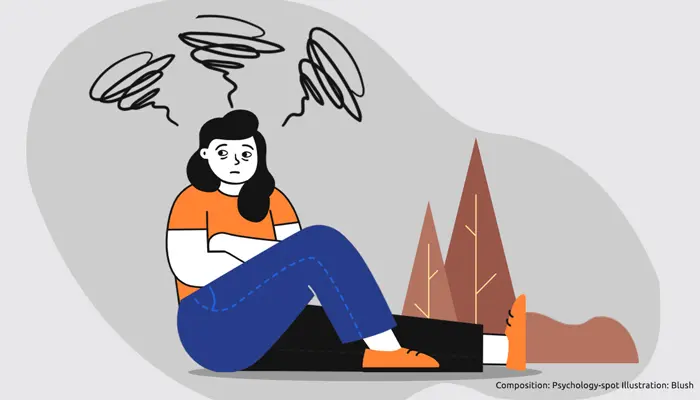
The year was 1851 when Sojourner Truth, a woman born into slavery in the United States who would become a famous anti-slavery speaker, gave a short speech in which she asked the simple question “Am I not a woman?”
Her speech helped launch the movement for women’s suffrage in the United States, but she also laid the first stone to unite women for a common goal since at that time society was divided into more privileged white women and black women considered of “second category”.
Her case shows us that biology and culture, natural and social are often intertwined in intricate ways, giving rise to different interpretations of the same reality. Therefore, the question “What it means to be a woman?” continues to be as valid today as it was centuries ago.
The disputed gender
“Only the delirious would deny the biological differences between people, but only the uninformed can maintain that what the body means and its relationship with the social category does not vary between cultures and over time,” said Susan Stryker the historian who studied gender and human sexuality.
Until relatively recently, being a woman was inextricably linked to motherhood. Several studies have confirmed that in pro-natalist societies – which are almost all – women who voluntarily decide not to have children are more stigmatized than men, as well as being seen in a more negative and stereotyped way than those who have children.
Over time, the cultural-historical narrative has inextricably connected the concepts of “mother” and “woman”, such that women’s individual identities have been profoundly undermined by pronatalist discourses. For this reason, since the 1960s, many women affiliated with the Child-free movement have been fighting for their identity, separating being a woman from the ability or desire to procreate.
A little earlier, in 1949, the French philosopher Simone de Beauvoir proposed another way of understanding this genre by stating: “On ne naît pas femme: on le devient”; that is, “You are not born a woman, you become one.” She meant that from the moment we are born, our bodies are influenced by social and cultural processes that transform us into the people we eventually become.
The feminist philosopher and activist pointed out that both men and women are molded by society to fulfill certain roles, mandates and exclusions. From the moment we are born, we are pigeonholed into a category that contains an “instruction manual” about what is expected of us.
As another philosopher, María Luisa Femenías, pointed out, “Being a woman is a social category that is supposedly constituted on the basis of sexual dimorphism.” As we get older, we become aware of societal expectations for our behaviors, which are largely based on our biological sex. Therefore, until now the concept of woman had started from a body dysmorphism, a genetic inheritance that differentiates us from men, to establish its roots of meaning in society and culture.
However, Judith Butler, also a philosopher, thinks that the correspondence or coherence between biological sex and gender is simply a cultural expectation since there have always been people who identified with the female sex, even if they were not born with that sex. The Roman Emperor Heliogabalus, for example, preferred to be referred to in feminine terms. From this perspective, genres are apprehended and constructed in society.
Being a woman, an act of personal significance
The multiple answers to the question “What it means to be a woman?” can stretch the boundaries of femininity in multiple directions. While some people embrace a rainbow of possibilities and refer to a sentiment that should take precedence over biology, others cling to a biological fundamentalism. And everyone is prepared to defend or even impose their “vision”.
However, what is “correct” or “real” is not so obvious when we plunge into the choppy waters of personal meaning. The only certain thing is that with the passage of time, cultural concepts and conventions are transformed, becoming broader or, on the contrary, more restrictive, to reflect the social concerns of the moment and respond to the needs of a world that does not stop changing.
Labeling others differently than they have labeled themselves is invalidating, but undermining the foundations of a concept that is at the core of our identity is terrifying for many. After all, being a woman and feeling like a woman continues to be an act of personal significance.
On a social level, while the concept continues to be woven and unwoven, lending itself to fierce political struggles, it should be considered that “The deconstruction of identity is not the deconstruction of politics; rather it establishes as politics the very terms with which identity is structured”, as Butler wrote.
“If identities were no longer established as premises of a political syllogism […] the cultural configurations of sex and gender could then multiply”. In this way, everyone would be freer to be what they are: a person with fewer labels and more freedom to explore their essence – beyond sex or gender – instead of trying to fit into molds that cannot contain human richness and which often only serve to drive us apart.
With that being said, Happy Women’s Day!
Sources:
Jones, R. (2021) El grito de guerra de Sojourner Truth todavía resuena 170 años después. In: National Geographic.
Stryker, S. (2020) What Does It Mean to Be a Woman? It’s Complicated. In: Time.
Moore, J. (2014) Reconsidering Childfreedom: A Feminist Exploration of Discursive Identity Construction in Childfree Live. Journal Communities. Women’s Studies in Communication;37:2: 159–180.
Butler, J. (2007) El género en disputa. El feminismo y la subversión de la identidad. Barcelona: Ediciones Paidós Ibérica.



